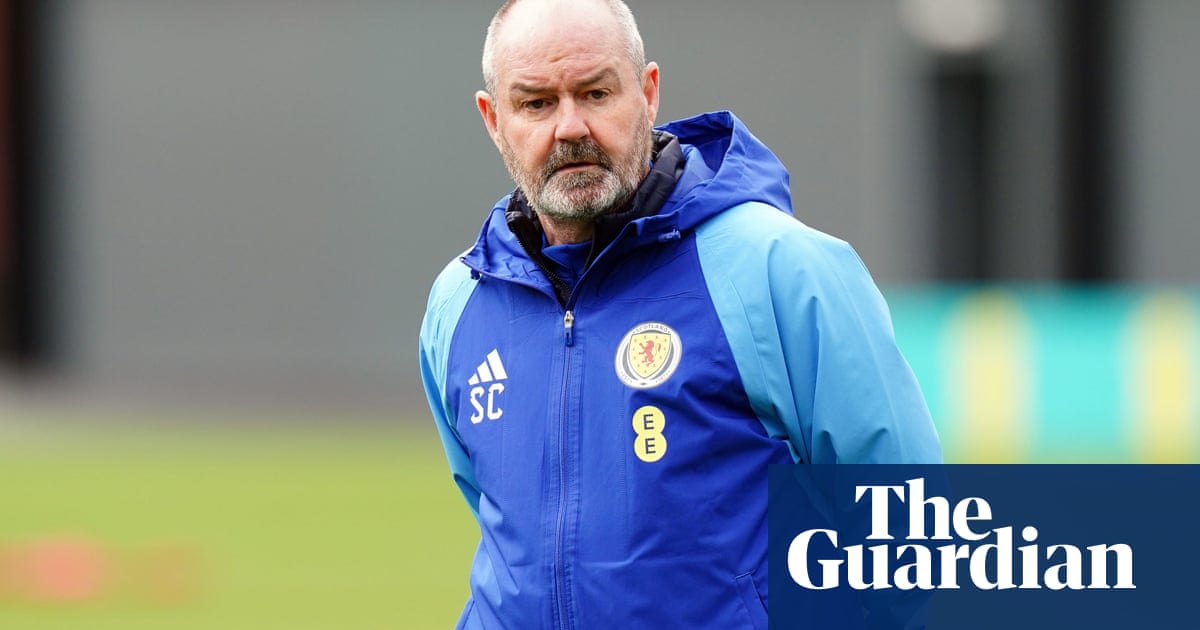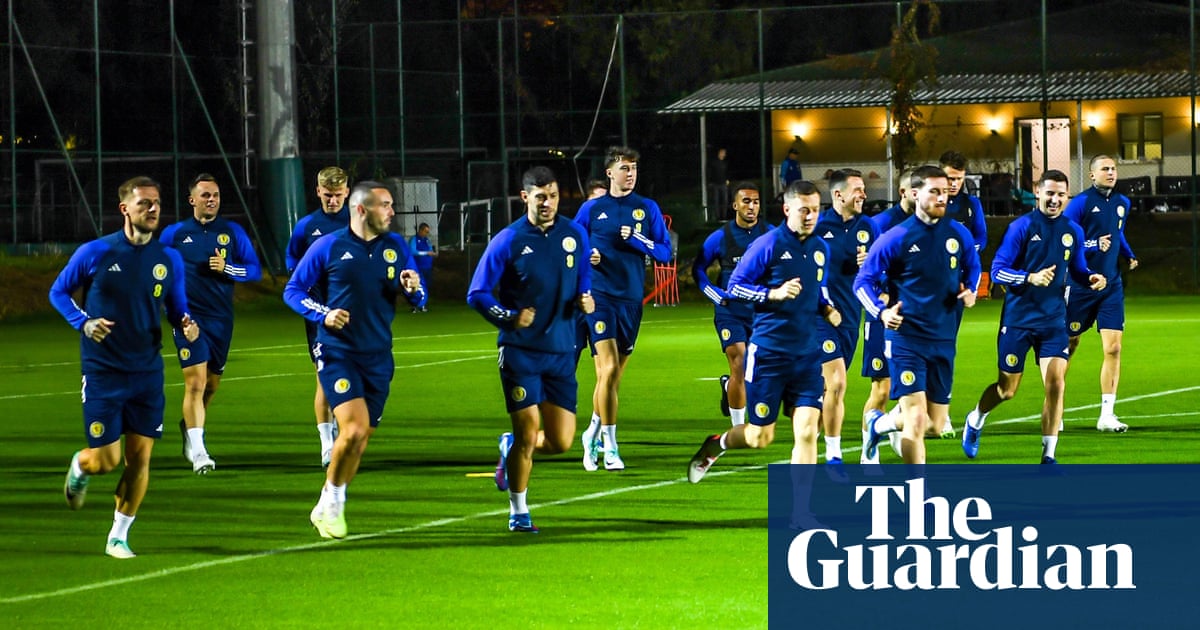
In normal times in a normal world, Scotland’s buildup to their Euro 2024 qualifier in Spain would have been disrupted by speculation and the very real prospect of losing a manager.
Steve Clarke has every professional attribute required by Rangers as they seek to move on from the inevitably disastrous, and brief, tenure of Michael Beale. Yet Clarke’s name has been notably absent as the Ibrox board plot a path forward, which at this point appears to focus on whether Philippe Clement represents a smaller punt than Kevin Muscat.
Clarke’s pragmatism, knowledge of the Scottish game, organisational skills and ability to instil an appropriate level of fear into players would serve a rudderless Rangers well. Contrary to widespread opinion, it is actually debatable whether Scotland can call upon a superior group of players to 10, 15 or 20 years ago. Clarke’s work has been the differentiator. The former Chelsea player refuses to sell himself but his credentials should resonate in club boardrooms.
Events of February 2019 go a long way towards explaining why Scotland’s biggest worry before Thursday night in Seville relates to Kieran Tierney’s absence. An emotional, furious Clarke castigated “dark ages” sectarian abuse received at Ibrox while in charge of Kilmarnock. To his credit, the Rangers chairman, Dave King, issued Clarke with an immediate apology as Scotland’s football authorities cowered in the corner. For a noisy, militant wing of the Rangers support, Clarke will never be forgiven. It seems safe to assume the feeling is mutual, such was the depth of his upset.
This unfortunate episode, though, continues to deny Rangers a managerial candidate of far more substance than many of those who came before. Walter Smith was already a club icon before being coaxed back to Ibrox, from Scotland, in 2007 as Rangers needed a drastic reboot. There are parallels between the management styles of Smith and Clarke for anybody with broad enough mind to consider them.
There has not even been any requirement to ask Clarke about a return to the club fold. Instead, focus has stayed on whether Scotland will dispense with the three-man defence that has served them so well for a game which could seal Euro 2024 qualification. Tierney is more than a centre-half for Clarke. The 26-year-old starts attacks, rampages and dictates the pace of how the Scots play. Without him, and with no comparative replacement, Clarke will be tempted to revert to a back four.
Avoiding defeat in Spain would secure Scotland’s qualification. If that seems a tall order – Spain have rattled in 13 goals in their last two outings – the evening of 28 March should stir Scottish hope. A 2-0 win over Spain in Glasgow was the consequence of an outstanding performance both with and without the ball. The gripes of Rodri added to Scottish celebration. “This is not football,” whined the Manchester City midfielder. You bet it was, squire; it was precisely the kind of football Scotland should never be afraid to play.
Spain have subsequently found their feet and their Group A groove. In truth, the more likely path to Germany for Clarke and his players comes on Sunday. If Norway do not defeat Spain then, Scotland have their finals berth. Any alternative scenario – namely, wins for Spain and then Norway – would have the Scots sweating for the first time in a section where they have earned maximum points from five fixtures. Even Scotland cannot stumble from here. Surely.
Fatalism among fans means no chickens will be counted. Yet Clarke, rightly, bridles when the failings of previous Scotland teams are used as any form of reference point. This one has not only excelled but met expectations, save a World Cup playoff against Ukraine where all manner of circumstances were set against Scotland, and the last European Championship, which still seem to motivate Clarke and his players. Prior to that, being in major tournaments at all had felt like an unattainable dream.
Clarke’s approach to what has quickly turned into a saga involving Elliot Anderson typifies Scotland’s position. The smart money would now be on the Newcastle United midfielder deciding he wants a crack at international football with England, the country of his birth, despite appearing briefly in a Scotland squad in September.
If Anderson felt uncomfortable in navy blue, and is honest enough to say as much when a decision is eventually made, nobody should criticise him. Meanwhile Clarke will not pursue or pester the 20-year-old.
While that is partly because it is not the Scotland manager’s style to do so, it also offers a nod towards how content he is with the environment he has created. If new players want to come along, fine. If some would rather remain on the outside, no problem. Clarke has the courage of his convictions that Scotland will progress regardless.
Spain’s relative fall from grace means they are 10th in the Fifa rankings. With a point to prove and ground to make up, they may well be too strong for Scotland. This should only delay the inevitable. Scotland’s worry is that the body of Clarke’s work is appreciated elsewhere before this team reaches the top of the mountain.











